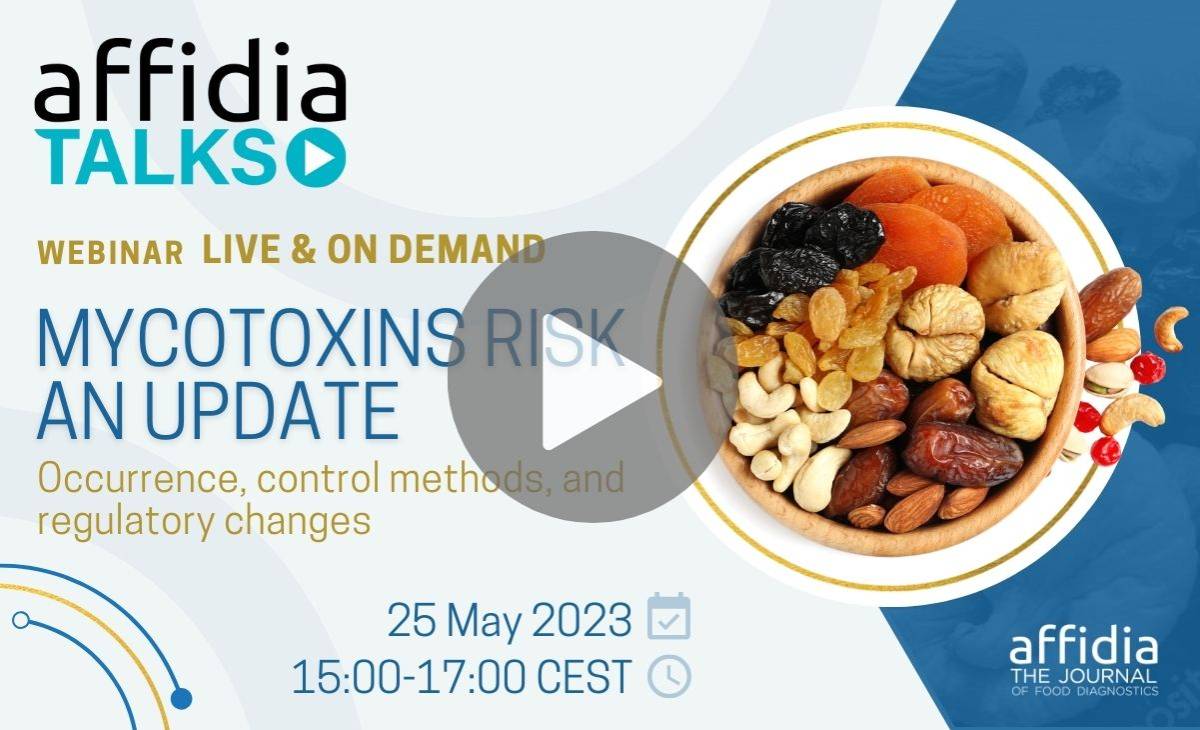As we learned in our past webinars about mycotoxins, we need to monitor the risk of contamination to save resources and prevent wrong decisions about raw materials.
The origin of the commodities, the weather conditions, the level of preventive measures implemented by farmers, as well as the frequency of incidents and recalls must be considered. Inspection and certification companies can prevent the import of non-compliant raw materials, but sometimes the goods maintain a level of risk, particularly now with new lower EU Maximum Limits in place or incoming.
Analytical methods, both rapid onsite and laboratory ones, are sensitive and precise, and interlaboratory variation is acceptable, but sampling and sometimes sample preparation requires a lot of resources and knowledge. Because of this, commercial litigations and even the seizure of goods can occur. Scientists worked and are still working to develop post-harvesting mitigation methods, nevertheless, mycotoxins are still one major cause of recalls and incidents.
In this webinar, you will be informed about the latest methods to prevent contaminated raw materials from entering your production process, the mitigation procedures available, the most effective techniques for collecting and preparing samples, and the recent changes in regulatory limits.

15:00 - 15:05 Introduction by Affidia Journal
15:05 - 16:25 Presentations
15:05 - 15:25 Mycotoxins formation and mitigation methods in different food chains by Prof. Armando Venancio, PhD (Universidade do Minho)
15:25 - 15:45 Are sample size and sample preparation for mycotoxin quantitation in grain products getting trivialized? by Prof. Limbikani Matumba, PhD (Lilongwe Univ. of Agric. & Natural Resources)
15:45 - 16:05 FBOs facing the challenge of new mycotoxins regulation by Maurizio Paleologo (Affidia Journal)
16:05 - 16:25 Regulatory updates by Frans Verstraete (EU Commission)
16:25 Tech solutions on the market by the Sponsors
16:40 Q&A session
17:00 Conclusions
Affidia Talks are solution-oriented virtual events that provide insights into hot topics of food safety and food control.
Our speakers and panelists are independent experts with decades of experience. They will guide you through the latest regulations, the most innovative control strategies, and how the science is changing.
With our webinars we aim to give you informative contents, which may be presented in different formats (presentations, video interviews, and/or panel discussions).
As in any Affidia Talks, there will be a clear separation between the free opinions of the experts, the points-of-view of the stakeholders, and the advertisements of suppliers of products or services that decided to support the event.
This webinar will provide valuable information to:
• food safety professionals;
• food technologists;
• safety and quality managers;
• food safety auditors;
• food regulatory experts;
• laboratory directors, managers, and supervisors;
• plant operations;
• production specialists;
• Food scientists.
If you miss the live event, visit www.affidiajournal.com and watch it on demand (registration is required).
By participating in our webinar, you'll gain access to a range of exclusive opportunities:
For any question or doubt, do not hesitate to contact us at this email [email protected]
The Affidia Journal team is always available for any queries, write to us and we will get back to you as soon as possible
Price does not include VAT, which will be charged where appropriate.
Please, send a certificate attesting such status to [email protected]
* <30 years old
‡ title obtained less than 12 months ago.
Price does not include VAT, which will be charged where appropriate.